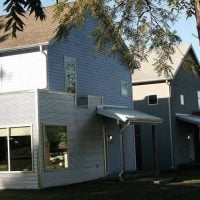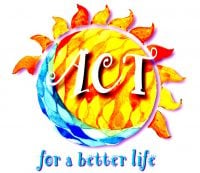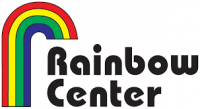
Rainbow Center
Drug Rehab Center in Columbus, Nebraska
- Opioid Addiction
- Dual Diagnosis
- Drug Addiction
- Alcoholism
Rainbow Center is a non-profit addiction and substance abuse treatment center providing individualized care, crisis services, substance use treatment, aftercare programs and education and prevention programs to individuals, families, and communities in the tri-cities area of Scottsbluff, Gering, and Mitchell, as well as North and South Platte Counties for over 40 years.
About Rainbow Center in Nebraska
Rainbow Center in Columbus, Nebraska, is a non-profit addiction and substance abuse treatment center dedicated to providing effective and comprehensive care to individuals, families, and communities. Operating for over 40 years, the Rainbow Center services a wide range of comprehensive mental health needs, including crisis services, substance use treatment, and aftercare programs. The Rainbow Center serves the tri-cities area of Scottsbluff, Gering, and Mitchell, as well as North and South Platte Counties.
The Rainbow Center provides a range of services designed to meet the individual needs of clients diagnosed with drug and alcohol abuse and mental health problems. These services include individual, family, and group counseling, medication-assisted treatment, case management, and recovery support. They also provide gender-specific and cultural-specific treatment options, as well as access to mental health professionals, social workers, and certified counselors. They provide services for those with co-occurring mental health and substance use disorders and offer support for those affected by a loved one’s substance use disorder.
Rainbow Center is certified by the Nebraska Department of Health and Human Services and accredited by the Joint Commission. They have been recognized as one of the region’s best treatment centers for their care and commitment to their community. They also offer a variety of education and prevention programs for schools, families, and businesses in the region to further support their mission of helping those in need.
Genders
Ages
Modality
Additional
Conditions and Issues Treated
Opioid addiction treatment should be done in a medically supervised drug rehab. While taking opioids, users will typically use other substances to enhance the effects of opioids or to reduce the adverse effects of opioid use. Opioid addiction treatment will include detoxification and drug rehab counseling to help both the user and their loved ones learn how to live a successful sober lifestyle.
Treatments such as methadone, buprenorphine, and naltrexone are three medications that can help treat opioid addiction. These drugs work on the brain’s pleasure center and reduce cravings and the effects of illicit opioids such as heroin. These drugs can be either given orally or by injection. Individual drug rehab counseling sessions can be helpful to discuss any questions or concerns with the drug treatment program. This counseling will also help the user set goals for when they finish drug rehab.
Opioid addiction recovery is a long process. Many of the changes to the brain caused by opioid use cannot be undone, but with time and the proper treatment, a person can return to normal function. After detox, treatment will include drug rehab counseling and entering a halfway house or sober living community. Aftercare is critical to long-term recovery, as it helps the user avoid relapsing and entering back into drug rehab.
Levels of Care Offered
This center offers a variety of custom treatment tailored to individual recovery. Currently available are Aftercare Support, Drug Rehab, Dual-Diagnosis, Outpatient, with additional therapies available as listed below.
“Outpatient treatment is ideal for those who have a lower intensity addiction. It’s also suitable for those with a supportive environment and those on a tight budget.
Outpatient treatment can be considered the lowest intensity level of addiction treatment. It is ideal for early phase addiction or lower intensity addictions. It may involve weekly sessions instead of daily. Peer group support, 12-step programs, and individual counseling may still be used and anti-addiction medication.
Aftercare support is vital to those who have completed a drug or alcohol treatment program. This support comes in individual and family counseling, treatment of psychiatric and other medical conditions, and medications to reduce cravings. It helps recovering addicts adjust to normal day-to-day activities and can last for a year or longer.
The majority of drug and alcohol addicts who receive aftercare treatment do not relapse. It is estimated that without aftercare, the relapse rate will be between 70 to 90 percent for most people. Aftercare is the final stage in addiction recovery, but it will also help maintain sobriety if relapse does occur.
Therapies & Programs
No single treatment works for all addicts; therefore, the goal of treatment and therapy should be to find what works best for each individual. Some people requiring addiction treatment may only need a few weeks of inpatient care. Others will require long-term residential care. Tolerance and withdrawal levels vary from person to person and thus affect the intensity of the treatment needed.
If an individualized approach to treatment and therapy is not offered, addicts may fail to reap benefits from their efforts. Professionals must customize plans according to their patient’s needs, limitations, and strengths. The goal of all forms of addiction treatment should be for addicts to find healthy ways to cope with their addiction and its underlying causes.
Group therapy is held in a safe, controlled setting where patients can feel comfortable sharing their struggles and gaining perspective through shared conversations. It takes place in a group rather than one on one to prevent feelings of isolation or being unique in their situation while creating an environment for addicts at Rainbow Center to develop fellowship, accountability, and support. Group therapy is an important tool in recovery that prevents cravings that prompt a return to active addiction.
Life skills training is beneficial for addicts in recovery because it helps them learn how to take care of themselves and improve their quality of life, which can promote feelings of purpose and motivation.
This type of treatment works by teaching individuals life-enhancing skills that support positive living, including:
- Healthy lifestyle habits
- Skills to effectively manage stress
- Effective communication skills to help them get their needs met without turning to drugs or alcohol
- Money management and budgeting skills so they can continue to take care of themselves after treatment ends.
Payment Options Accepted
For specific insurance or payment methods please contact us.
Additional Details
Specifics, location, and helpful extra information.
Columbus, Nebraska 68601 Phone Number(402) 564-6622 Meta DetailsUpdated November 25, 2023
Staff Verified
Rainbow Center Patient Reviews
There are no reviews yet. Be the first one to write one.
Columbus, Nebraska Addiction Information
Despite a total population of slightly less than 2 million residents, methamphetamines are one of the most commonly abused illicit substances in the state. Alcohol abuse is so common that a news article once referred to Nebraska as "America's 9th drunkest state". Although opioid abuse rates in Nebraska are not as high as those in other states, opioids are still involved in most overdoses.
The drug addiction problem in Columbus, Nebraska, is fairly bad. About 812 admissions to treatment centers for drug abuse in Columbus, Nebraska, in 2012. Prescription opioids were involved in 542 overdose deaths from 2012 to 2016. There are many different drug treatment options available in Columbus, Nebraska. Some of the most common treatments include inpatient and outpatient rehabilitation, 12-step programs, and detoxification.
Treatment in Nearby Cities
- Saint Paul, NE (58.4 mi.)
- Mc Cook, NE (190.5 mi.)
- Winnebago, NE (72.5 mi.)
- Fremont, NE (45.3 mi.)
- Minden, NE (104.6 mi.)
Centers near Rainbow Center
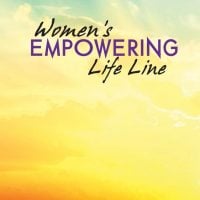

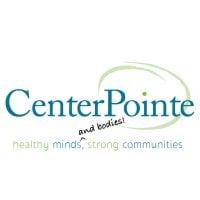
The facility name, logo and brand are the property and registered trademarks of Rainbow Center, and are being used for identification and informational purposes only. Use of these names, logos and brands shall not imply endorsement. RehabNow.org is not affiliated with or sponsored by Rainbow Center.

